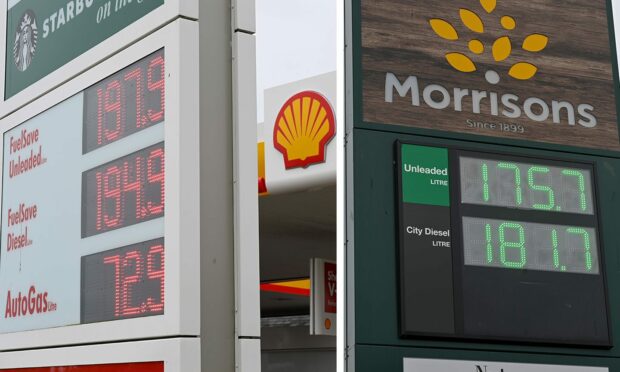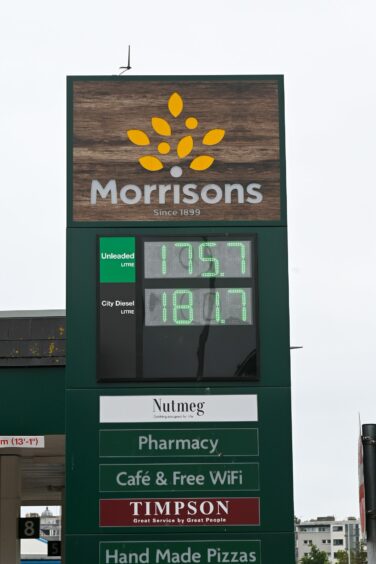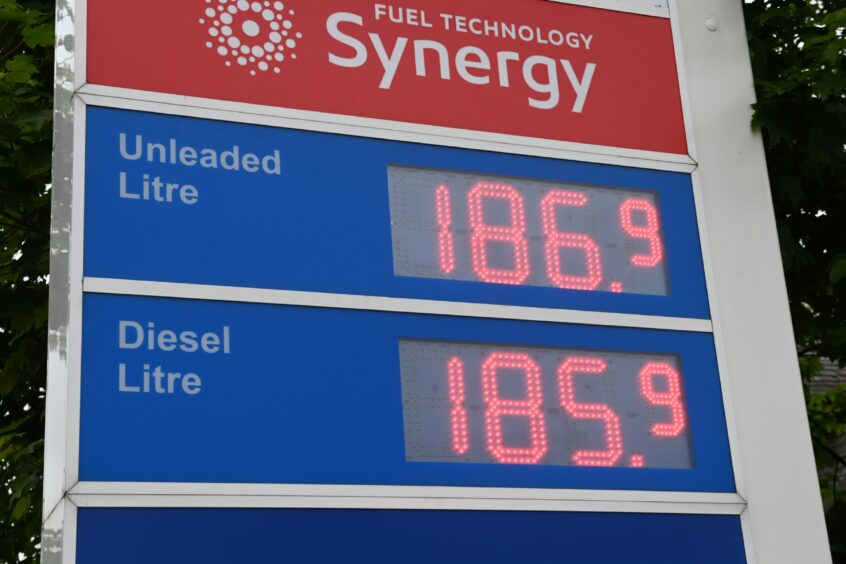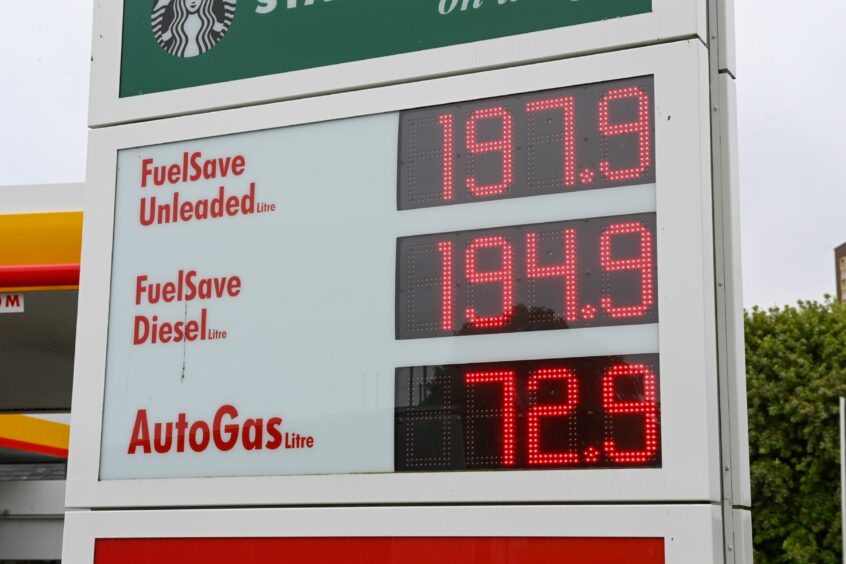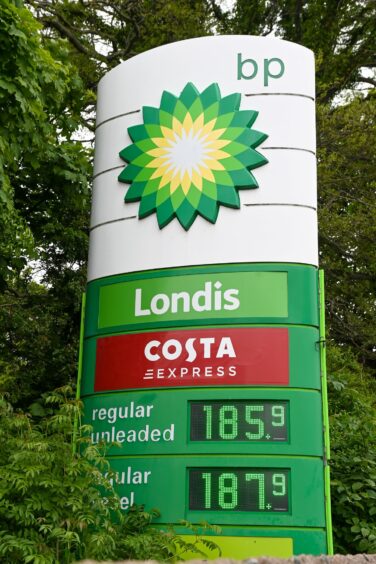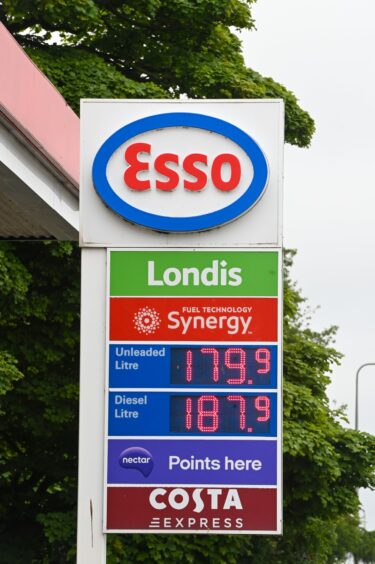Petrol prices are nearing £2 per litre with further hikes expected throughout the summer.
RAC has warned motorists that they should prepare for “never-before-seen” pump prices in coming months.
The Press and Journal has taken a look at four pumps on Aberdeen’s King Street and Ellon Road to find out how much motorists in the city are currently paying for fuel.
How do fuel prices compare on King Street?
On Monday, the UK average fuel prices were 178.5p per litre for petrol and 185.2p per litre for diesel.
The photos below show four out of the five forecourts that we looked at in Aberdeen are currently sitting above the UK average.
At the Shell station on King Street petrol prices have increased to an eye-watering 197.9p per litre, while diesel is sitting at 194.9p per litre.
Just one-and-a-half miles away, drivers can save more than 20p per litre on petrol at Morrisons.
The supermarket giant is offering the cheapest prices out of the five at 175.7p per litre for petrol and 181.7p per litre for diesel.
How have prices changed since March?
The largest weekly increase in fuel prices since March has been recorded this week, according to RAC.
On March 29, The Press and Journal compared the prices at four forecourts on King Street and identified an almost 20p difference within a two-mile radius.
Since then, petrol prices at all have risen by around 20p per litre – with Shell increasing by 35p per litre.
Diesel prices on King Street have also increased since March.
Why are prices rising?
RAC is urging the government to take “drastic” action to soften the impact of rising fuel prices for drivers.
Simon Williams, RAC fuel spokesman, said: “With analysts predicting that oil will average 135 US dollars a barrel for the rest of this year, drivers need to brace themselves for average fuel prices rocketing to £2 a litre, which would mean a fill-up would rise to an unbelievable £110.”
Exchange rates and changes to global prices, and supply and demand, of crude oil can lead to an increase in fuel prices.
The company has also said that the presence of supermarkets can play a big role in how fuel prices differ by region.
Supermarkets will often compete with each other on price or push independent forecourts to try and offer the cheapest option.
